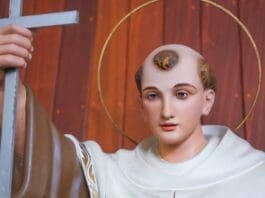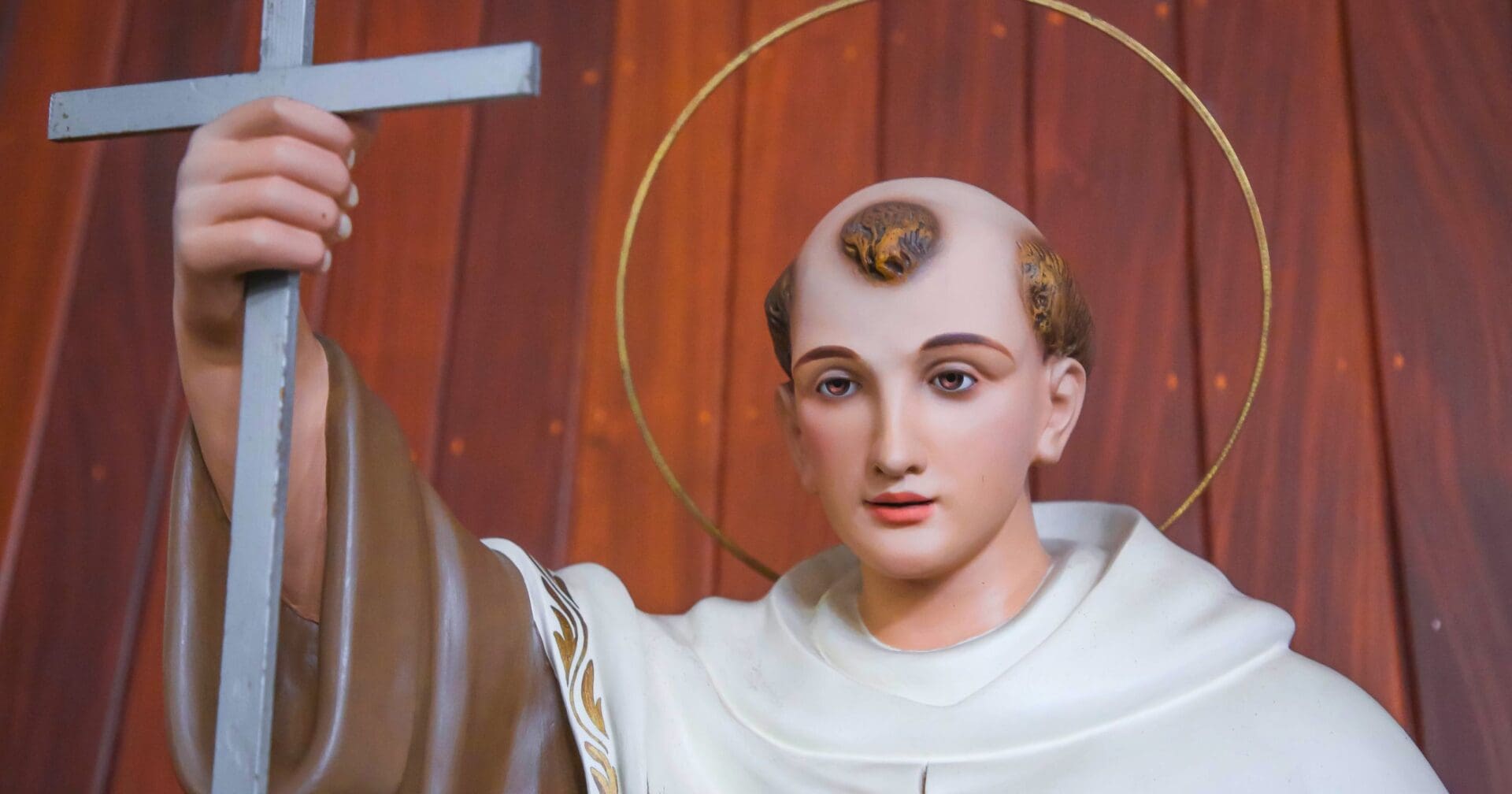
Saint John of the Cross, renowned as a master of mystical theology within the Catholic Church, stands as a pivotal figure in shaping Catholic spirituality. His influence is perhaps unparalleled, especially when considered alongside his contributions with St. Teresa of Avila in founding the Discalced Carmelites, an order dedicated to prayer, penance, and service to the Blessed Mother.
Born in 1542 in Fontiveros, Spain, as Juan de Yepes y Alvarez, John’s early life was marked by hardship and resilience. His father, Gonzalo de Yepes, a wealthy silk merchant, faced family ostracization for marrying Catalina Alvarez, a humble weaver girl. After Gonzalo’s death, Catalina faced the daunting task of raising John and his siblings in poverty.
Despite these challenges, John’s formative years were rich in learning and spiritual growth. He attended a school for impoverished children in Medina del Campo, where he received a basic education and learned various crafts. At 17, John’s path took a turn when he started working at the Plague Hospital de la Concepcion and was subsequently offered education at the Jesuit College, balancing his studies with his hospital duties.
From 1559 to 1563, John’s academic pursuits flourished at the Jesuits, where he studied languages and philosophy, notably influenced by Thomist thought. His calling to religious life led him to join the Carmelite Order at 20, where he continued his studies, notably at the University of Salamanca, a hub for Thomist philosophy. Ordained in 1597, his first Mass in Medina del Campo coincided with his pivotal meeting with Teresa of Avila, who inspired him to embrace and promote her reformist visions within the Order.
The year 1568 was a turning point, as John, adopting the name Juan de la Cruz (John of the Cross), and a few other friars commenced living according to the primitive Carmelite Rule in Duruelo, marking the birth of the Discalced Carmelites, known for their commitment to poverty and barefootedness. John’s dedication to spiritual renewal and guidance extended to his role as a spiritual director at the Convent of the Incarnation, under Teresa’s request.
However, this period of reform was not without strife. The original Carmelites, initially supportive, began opposing the reformist movement, culminating in John’s imprisonment in Toledo in 1576. Despite the adversity, his imprisonment was a time of profound spiritual deepening, leading to the composition of his most influential mystical works.
John’s later years were marked by both achievements and tribulations. He played various roles within the reformed Order, penned commentaries on his mystical poems, and continued his life of deep spiritual communion. However, disagreements with the Order’s leadership eventually led to his seclusion and subsequent illness.
Passing away in 1591 at the age of 49, John of the Cross left a legacy of humility, suffering, and spiritual depth. His beatification in 1675, canonization in 1726, and declaration as a Doctor of the Church in 1926, attest to his enduring impact. His works, including “The Ascent of Mount Carmel”, “The Dark Night”, “The Spiritual Canticle”, and “The Living Flame of Love”, continue to be essential readings in mystical theology.
Photo credit: Immaculate / Shutterstock.com
The post Saint John of the Cross appeared first on uCatholic.
Daily Reading
Fourth Sunday of Advent
Reading I Mi 5:1-4a Thus says the LORD: You, Bethlehem-Ephrathah too small to be among the clans of Judah, from you shall come forth for…
Daily Meditation
Picking Up on God’s Hints
Click here for daily readings Most of us would like it if God would make it super clear to us what He wanted us to do. Even Mary at the…




